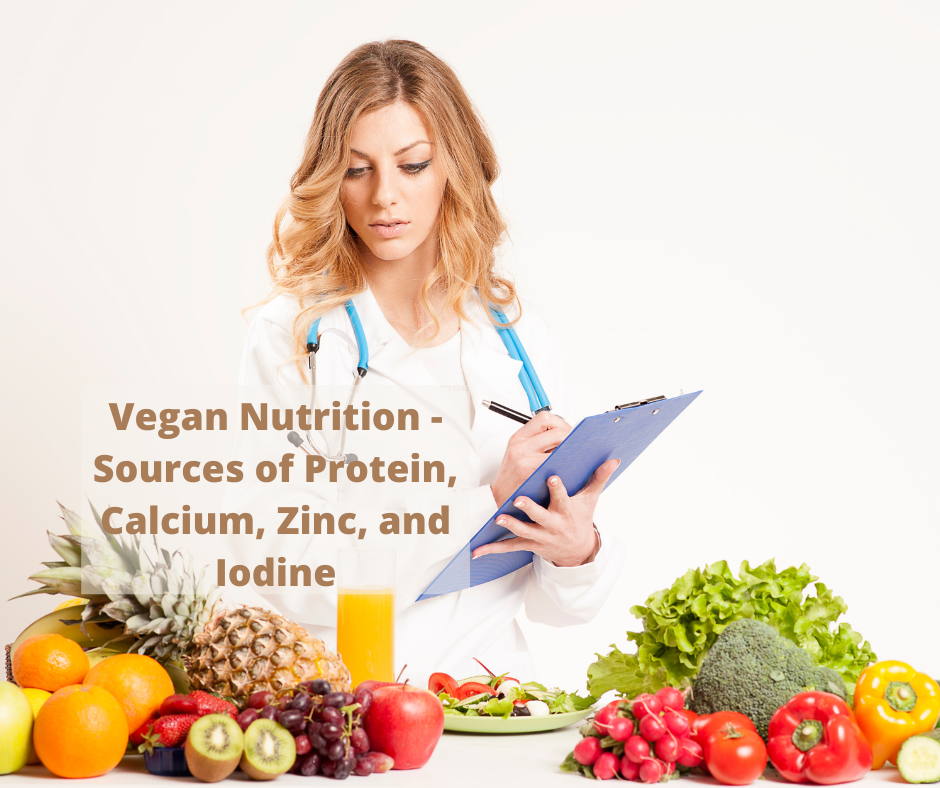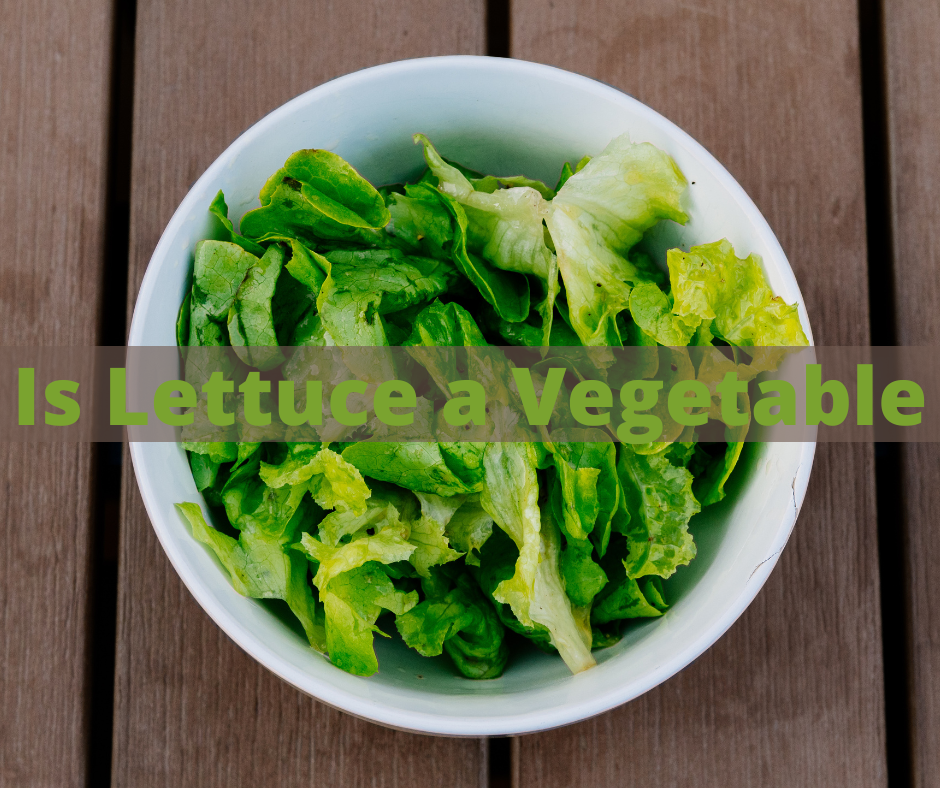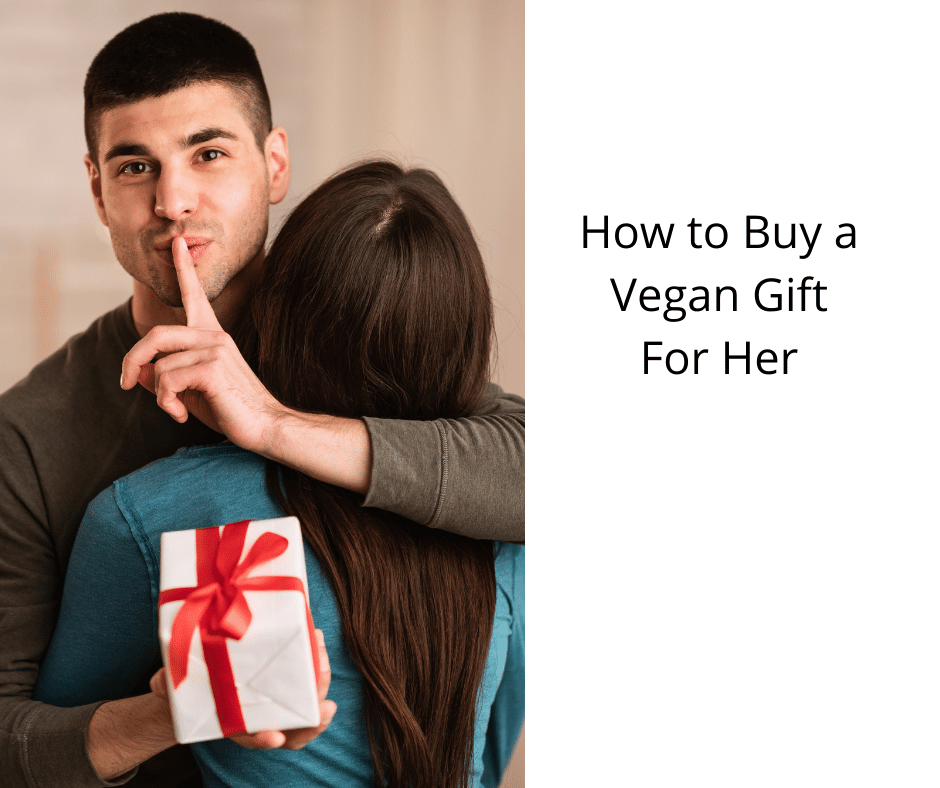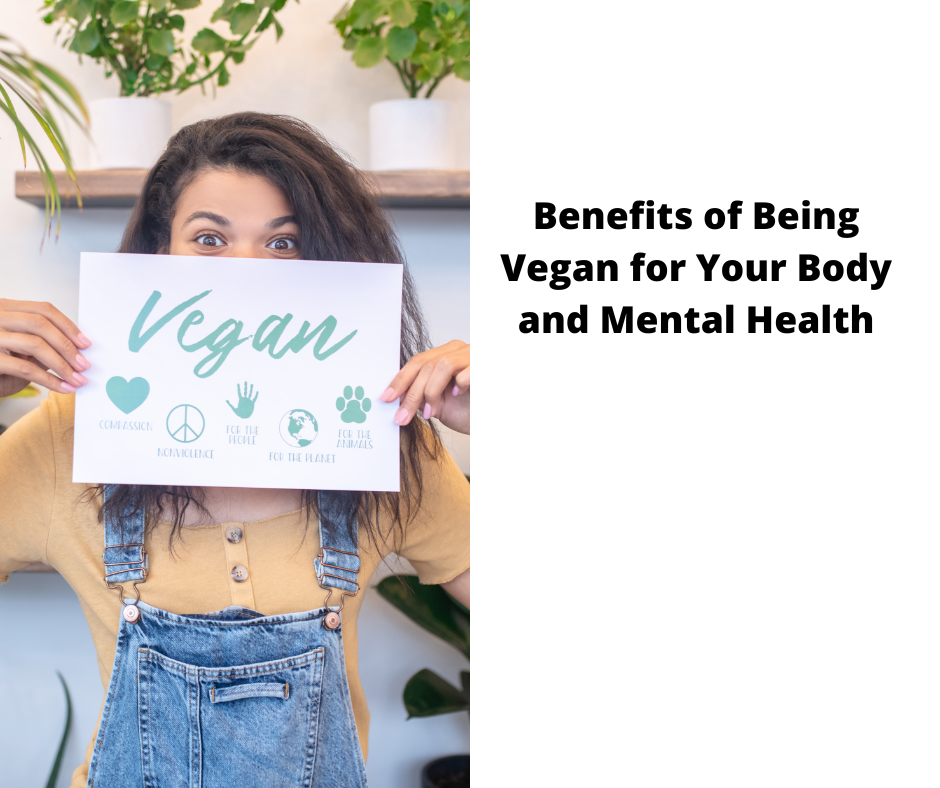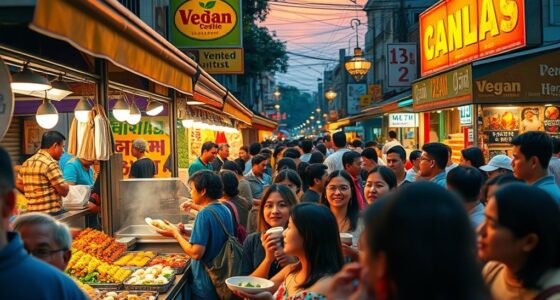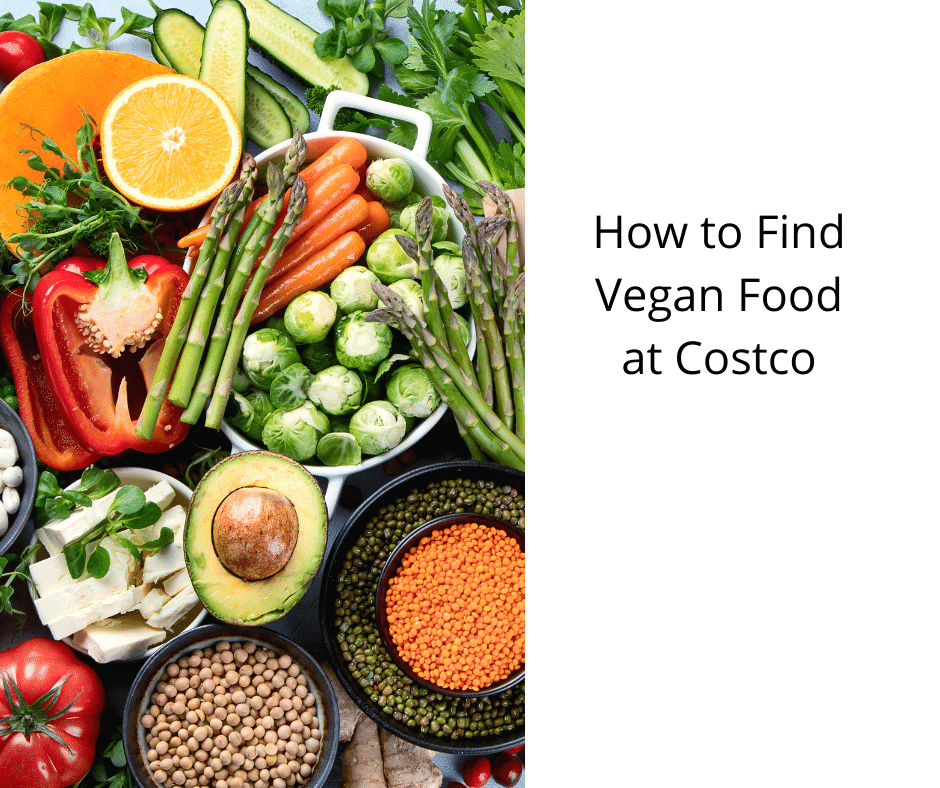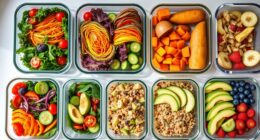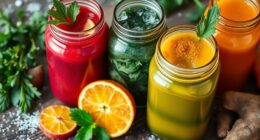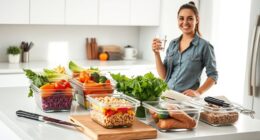Nutritional requirements are essential for everyone, regardless of their dietary preferences, whether they include meat or not. As a vegan, I often get asked about where I get my protein from. Explaining that you can get all your nutritional needs met without consuming meat can sometimes be difficult. Yet, the truth is that there are numerous plant-based choices that provide all the vital nutrients the body needs.
Beans, lentils, tofu, and quinoa are just a few examples of vegan foods that can give you the protein you need. And nuts, seeds, fruits, and vegetables are all great sources of vitamins, minerals, and fiber. So next time someone asks you where you get your protein as a vegan, just tell them that you get it from plants!
Vegan Nutrition – Sources of Protein, Calcium, Zinc, and Iodine
What exactly is vegan nutrition? It is the nutritional and health aspects of a vegan diet. In short, a balanced vegan diet can meet all dietary recommendations for a healthy lifestyle. This article will examine the different sources of protein, calcium, zinc, and iodine in plant foods. Keeping all these nutrients in mind is vital for your overall well-being, so eating plenty of these foods is best.
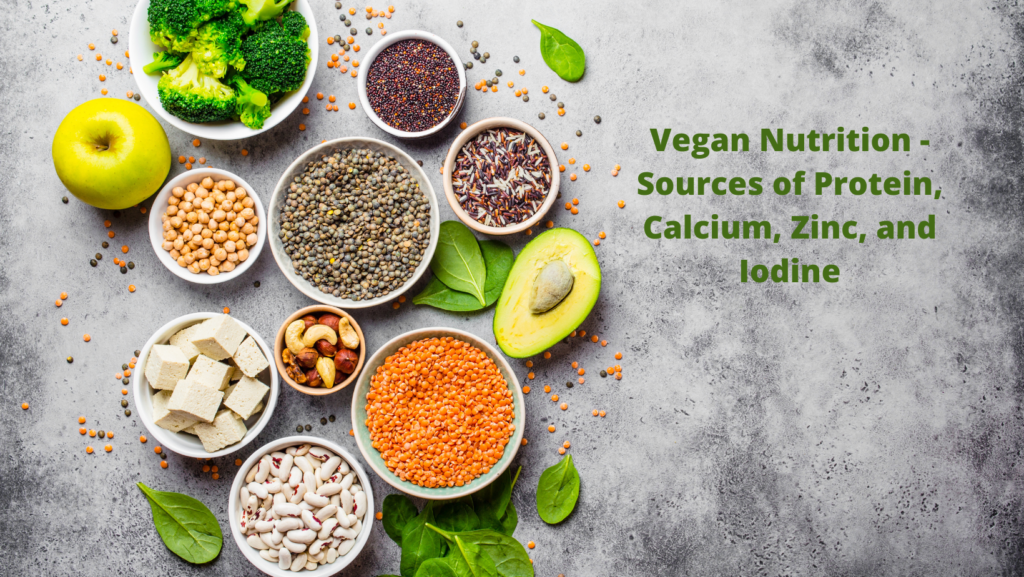
Sources of Protein
Vegans need to think about the best sources of protein. Soy, lentils, and peanut butter are good protein sources but don’t provide ample supply. Soy is high in fiber and protein, but they don’t fulfill your appetite for large amounts of protein.
Other vegan protein sources include tofu, quinoa, and quinoa-based products. Listed below are a few of the best sources of protein for vegans.
Legumes are a good source of protein.
Beans, lentils, quinoa, and peanuts are great plant-based protein sources. Soymilk and cheese are dairy-free, and soy products contain essential nutrients. Nuts are a good vegan protein source because they can be ground into almond flour, soaked to make dairy-free milk, and made into nut butter. Just make sure to check labels carefully.
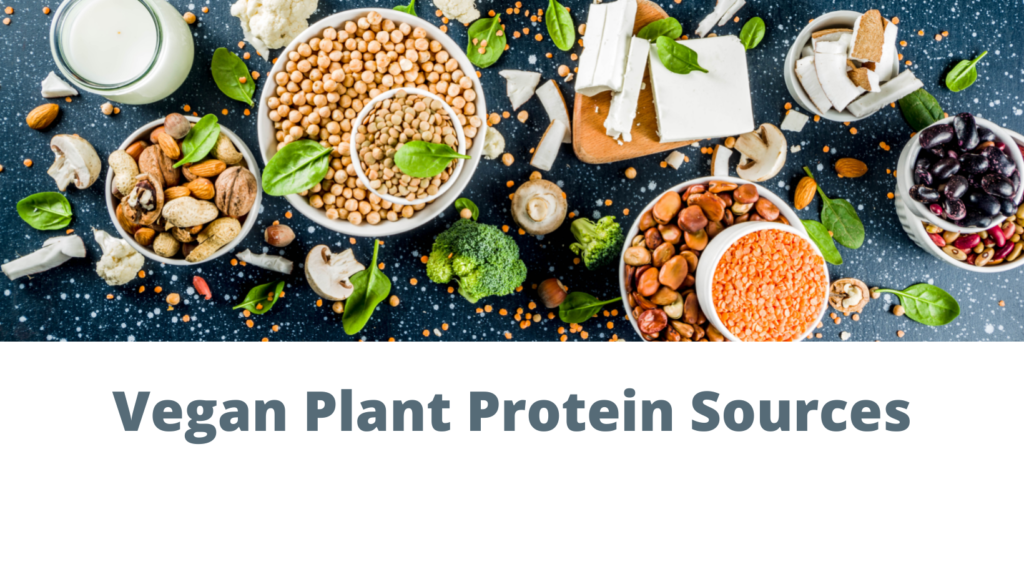
Sources of Calcium
Plant-based sources of calcium are abundant in tofu and other tofu alternatives. Soy milk and tofu contain a good amount of calcium and provide iron, magnesium, and selenium. For vegans, natto, made from fermented soybeans, maybe the best option. Natto is a traditional Japanese breakfast food that contains 206 mg of calcium per 200-calorie serving.
Legumes and beans are also excellent sources of calcium. They contain a significant amount of fiber, essential for a balanced diet. And, because they’re highly versatile, they’re a good source of calcium, ranging from 4% to 26% of your daily RDI. But beware – these sources don’t replace milk and cow’s milk, so they’re not an ideal substitute.
Sources of Zinc
If you’re looking for sources of zinc for vegan nutrition, consider lentils and whole-wheat bread. Lentils are a good source of zinc, and they have a lower fat content than most other grains. Just one cup of cooked lentils contains 1.3 mg of zinc, making them a healthy mineral source. You can also find it in other foods, like pumpkin seeds, lentils, and couscous.
Vegans and vegetarians need at least 50% more zinc in their diet than omnivores do. Studies have indicated that zinc levels in omnivores are higher than those in vegans, though their intake is significantly lower. However, the body can adjust by increasing its absorption and decreasing its excretion. So it’s imperative to include vegan sources of zinc in your diet. Ultimately, a well-balanced vegan diet is an excellent choice for anyone wishing to reduce their risk of chronic disease.
Sources of Iodine
Iodine is an essential mineral that helps your body create thyroid hormones, which control metabolism and maintain bone and brain growth. Many people don’t get enough iodine from their diet, and some studies even show that vegans aren’t absorbing as much as they need. In the West, we get most of our iodine from animal-based sources, such as milk. The fact that iodine in milk is not naturally present in this product makes it a difficult choice.
Despite the low iodine content in milk and seafood, many studies have shown that iodine intake is inversely correlated with UIC levels. Studies that examined vegans who didn’t supplement with iodine produced similar results. However, it’s still important to get adequate iodine from animal sources, even if they don’t meet the United States dietary recommendations.
Sources of Vitamin D
Aside from fortified cereals, some of the best vegetarian sources of vitamin D include tofu and soy chunks. Although tofu may be a new ingredient for you, Indians have long eaten this ingredient. Some breakfast cereals are also fortified with different vitamins, so read the label to ensure you’re getting enough vitamin D. Other sources to include mushrooms, a favorite of kids and non-vegans.
Although most animal-based vitamin D sources are unsuitable for vegans, mushrooms contain moderate nutrients. Mushrooms are naturally rich in vitamin D and are fortified with extra vitamin D after exposure to ultraviolet light. For vegans, it’s important to remember that vitamin D is a fat-soluble vitamin, which means it needs a source of fat to be absorbed by your body. Avocado, olive oil, nuts, and other fat seeds will do the trick.
In addition to these vegan sources of vitamin D, remember to get regular sun exposure. Just 10-15 minutes a day is enough to get your daily vitamin D. And if you can’t get outside, try a vitamin D supplement.
Vitamin B12
Vitamin B12 helps your body make red blood cells and keep your nervous system functioning properly. This vitamin is found naturally in animal foods, but it can also be produced synthetically and added to vegan foods. The best sources of B12 for vegans are fortified foods like cereals, non-dairy milk, and meat substitutes. You can also take a daily supplement or get injections from your doctor.
Although vegan sources of B12 are available, it’s important to remember that this vitamin is best absorbed from animal foods. So if you’re not getting enough B12 from fortified foods or supplements, you may need to consider eating animal-based products or taking regular injections.
Healthy Vegan Fat Sources
Healthy vegan fat sources include avocado, olive oil, nuts, and seeds. These foods are rich in monounsaturated and polyunsaturated fats, improving heart health and reducing the risk of chronic diseases. In addition to these healthy fats, vegans should also eat plenty of omega-3 fatty acids. These fats are found in flaxseeds, chia seeds, and walnuts. They can also be found in algae-based supplements.
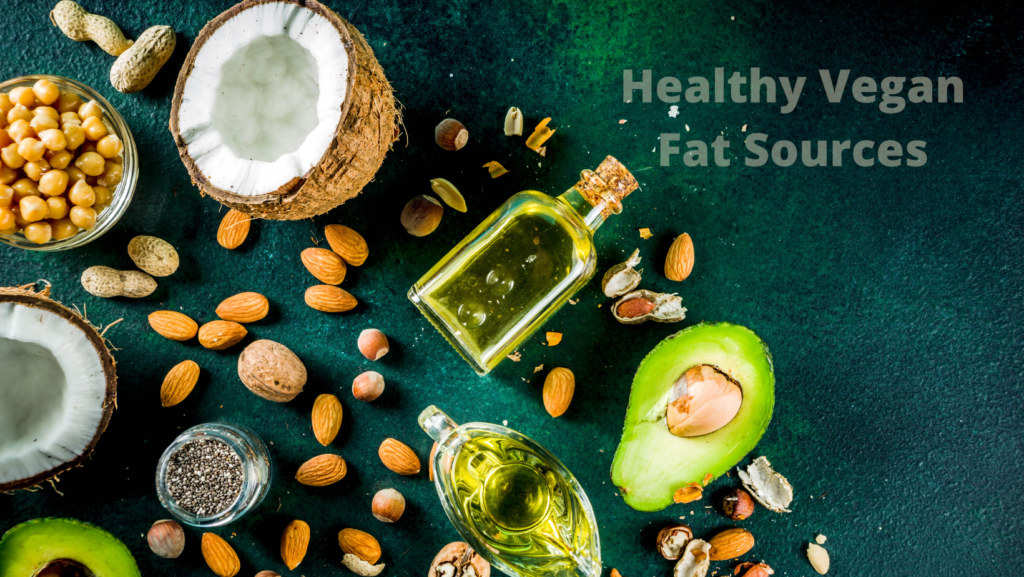
While omega-3 fatty acids are essential for good health, they are not as easy to find in vegan foods. This is why many vegans take a daily supplement or eat fortified foods. If you don’t get enough omega-3 fatty acids from your diet, you may experience dry skin, fatigue, and mood swings. You may also be at a higher risk for heart disease and other chronic diseases.
Conclusion
A well-balanced vegan diet can provide all the necessary nutrients, including protein, calcium, zinc, and iodine. However, some nutrients may be harder on a vegan diet. For example, vegans must ensure they get enough zinc and iodine in their diet. They can do this by eating fortified foods and supplements or getting regular sun exposure.
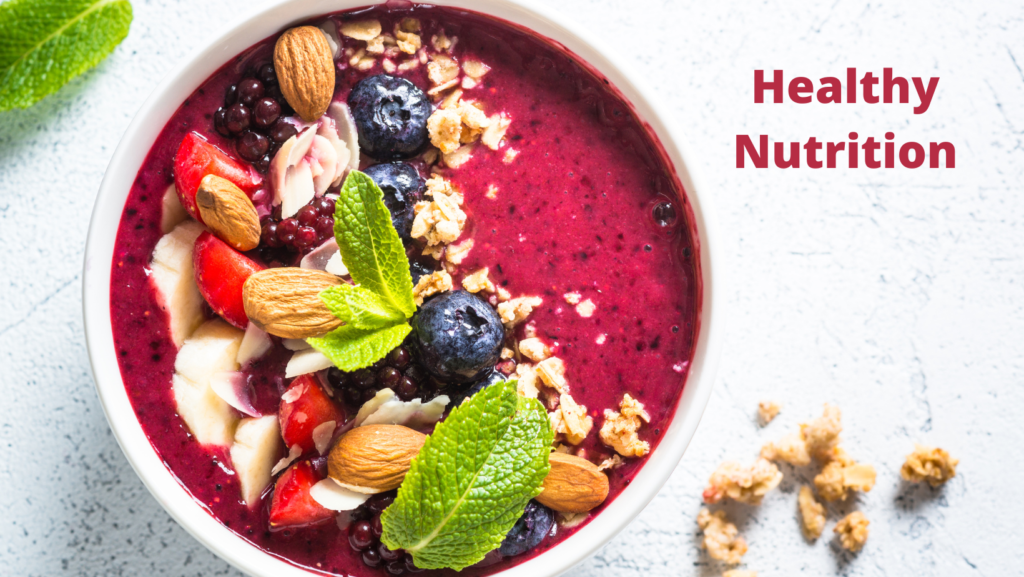
Vitamin B12 is another nutrient that is difficult to get from vegan sources. Vegans can get B12 from fortified foods or supplements, but it’s best absorbed from animal products. So if you’re not getting enough B12 from your diet, you may need to consider eating animal-based products or taking regular injections.
Ilana has been a vegan for over 10 years. She originally made the switch for health reasons, but soon found herself becoming more and more passionate about the ethical and environmental implications of a vegan lifestyle. Ilana is the author of The Graceful Kitchen, a blog all about veganism. She loves to cook up delicious and nutritious vegan meals, and share her recipes with others who are interested in leading a cruelty-free life. Ilana is also a strong advocate for using whole foods as the foundation of a healthy diet, and believes that going vegan is one of the best ways to achieve this.
